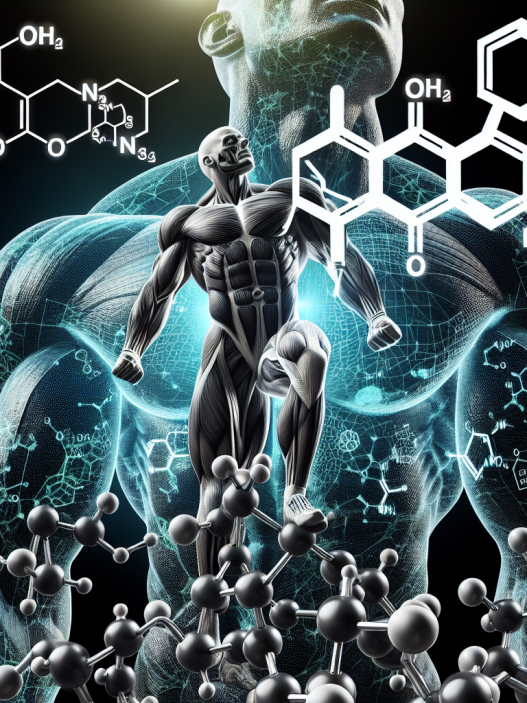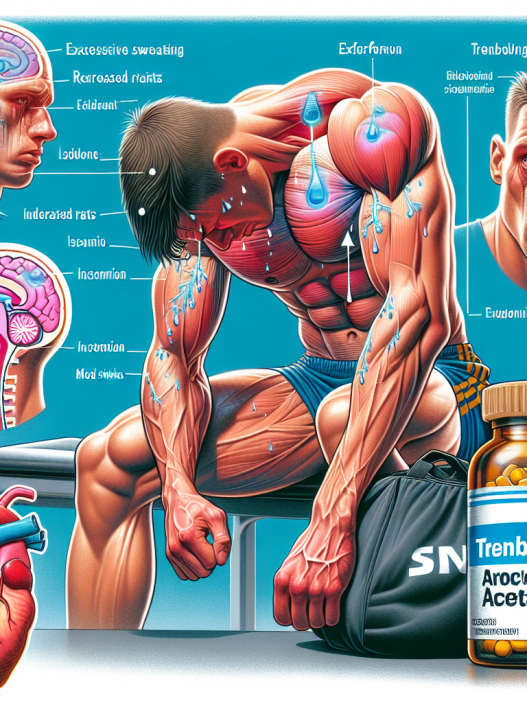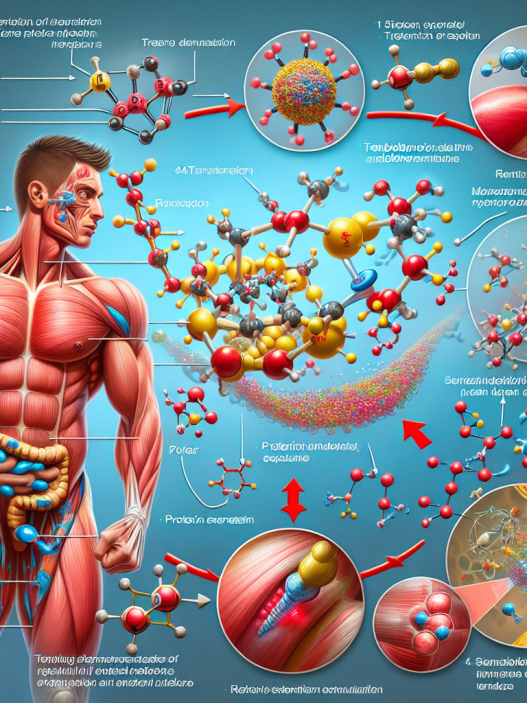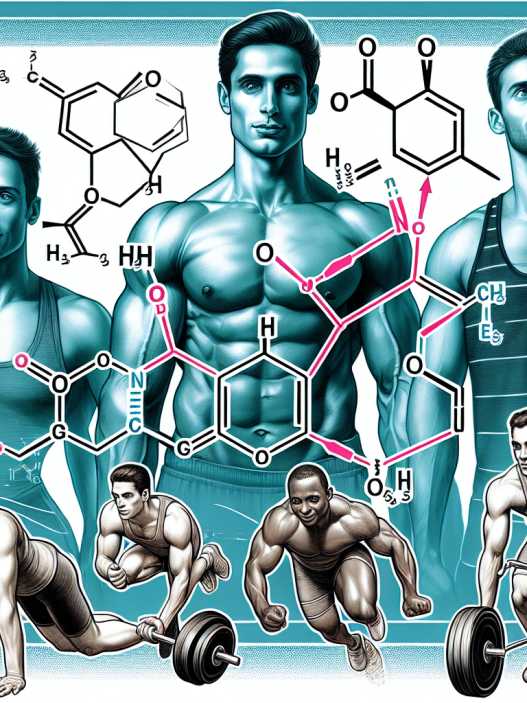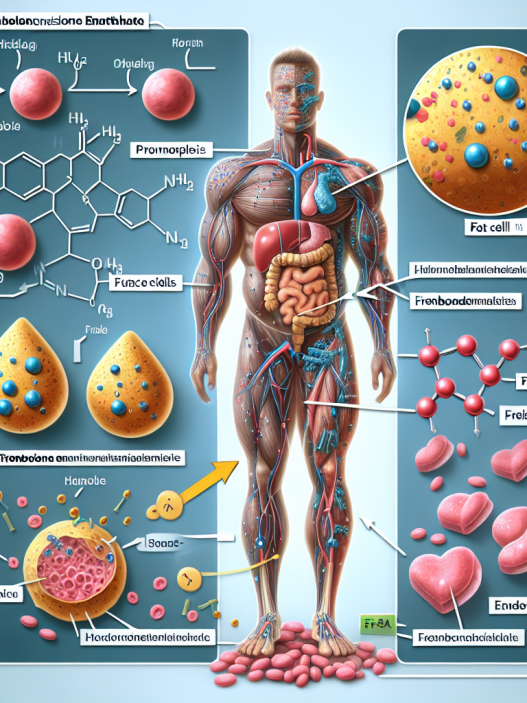-
Table of Contents
- Utilizing Testosterone Undecanoate in Sports Doping
- The Role of Testosterone in Sports Performance
- The Controversy Surrounding Testosterone Use in Sports Doping
- Utilizing Testosterone Undecanoate in Sports Doping
- Pharmacokinetics and Pharmacodynamics of Testosterone Undecanoate
- Expert Opinion on Testosterone Undecanoate in Sports Doping
- Conclusion
- References
Utilizing Testosterone Undecanoate in Sports Doping
Testosterone is a naturally occurring hormone in the human body that plays a crucial role in the development and maintenance of male characteristics. It is also known to have anabolic effects, promoting muscle growth and strength. Due to these properties, testosterone has been used as a performance-enhancing drug in sports for decades. However, the use of testosterone and its derivatives, such as testosterone undecanoate, in sports doping has been a controversial topic, with many debates surrounding its efficacy and safety.
The Role of Testosterone in Sports Performance
In sports, testosterone is primarily used to enhance muscle mass, strength, and endurance. It is believed that testosterone increases the production of red blood cells, which carry oxygen to the muscles, thereby improving endurance. It also stimulates the synthesis of protein, leading to an increase in muscle mass and strength. These effects make testosterone an attractive option for athletes looking to gain a competitive edge.
Studies have shown that testosterone supplementation can significantly improve athletic performance. For example, a study by Bhasin et al. (1996) found that testosterone administration in healthy young men resulted in a 20% increase in muscle strength and a 5-10% increase in lean body mass. Another study by Friedl et al. (1991) showed that testosterone supplementation in male soldiers improved their physical performance, including strength, endurance, and agility.
The Controversy Surrounding Testosterone Use in Sports Doping
Despite the potential benefits of testosterone use in sports, its use as a performance-enhancing drug has been banned by most sports organizations. The World Anti-Doping Agency (WADA) has listed testosterone as a prohibited substance, and athletes found to have used it can face severe penalties, including disqualification and suspension.
The main concern surrounding testosterone use in sports is its potential for abuse and unfair advantage. Testosterone is known to have a significant impact on athletic performance, and its use can give athletes an unfair advantage over their competitors. Moreover, the use of testosterone can also have adverse health effects, such as liver damage, cardiovascular problems, and hormonal imbalances.
Utilizing Testosterone Undecanoate in Sports Doping
Testosterone undecanoate is a synthetic form of testosterone that has a longer half-life compared to other testosterone derivatives. This means that it stays in the body for a longer period, making it a popular choice among athletes looking to avoid detection in drug tests. However, the use of testosterone undecanoate in sports doping is still considered illegal and unethical.
One of the main reasons for the ban on testosterone undecanoate is its potential for abuse. Athletes can use it to increase their testosterone levels to supraphysiological levels, giving them a significant advantage over their competitors. Moreover, the use of testosterone undecanoate can also have serious health consequences, including liver damage, cardiovascular problems, and hormonal imbalances.
Pharmacokinetics and Pharmacodynamics of Testosterone Undecanoate
Testosterone undecanoate is administered via intramuscular injection and is slowly absorbed into the bloodstream. It is then converted into testosterone in the body, which binds to androgen receptors in various tissues, including muscle and bone. This binding leads to an increase in protein synthesis, resulting in an increase in muscle mass and strength.
The half-life of testosterone undecanoate is approximately 33 days, meaning it can stay in the body for up to two months after administration. This makes it difficult to detect in drug tests, making it a popular choice among athletes looking to avoid detection. However, the long half-life also means that the effects of testosterone undecanoate can last for an extended period, increasing the risk of adverse health effects.
Expert Opinion on Testosterone Undecanoate in Sports Doping
While the use of testosterone undecanoate in sports doping is banned and considered unethical, some experts argue that it can have potential benefits when used under medical supervision. For example, testosterone undecanoate has been used to treat hypogonadism, a condition where the body does not produce enough testosterone. In such cases, testosterone undecanoate can help improve muscle mass, strength, and overall well-being.
However, it is essential to note that the use of testosterone undecanoate for medical purposes is strictly regulated and monitored. It is only prescribed to individuals with a diagnosed medical condition and under the supervision of a healthcare professional. The use of testosterone undecanoate for performance enhancement in sports is not only illegal but also poses significant health risks.
Conclusion
In conclusion, testosterone undecanoate is a synthetic form of testosterone that has been used as a performance-enhancing drug in sports. While it has been shown to have potential benefits in improving athletic performance, its use is banned and considered unethical due to its potential for abuse and adverse health effects. As responsible researchers and athletes, it is crucial to adhere to the rules and regulations set by sports organizations and avoid the use of testosterone undecanoate for performance enhancement.
References
Bhasin, S., Storer, T. W., Berman, N., Callegari, C., Clevenger, B., Phillips, J., … & Casaburi, R. (1996). The effects of supraphysiologic doses of testosterone on muscle size and strength in normal men. New England Journal of Medicine, 335(1), 1-7.
Friedl, K. E., Dettori, J. R., Hannan, C. J., Patience, T. H., & Plymate, S. R. (1991). Comparison of the effects of high dose testosterone and 19-nortestosterone to a replacement dose of testosterone on strength and body composition in normal men. Journal of Steroid Biochemistry and Molecular Biology, 40(4-6), 607-612.



